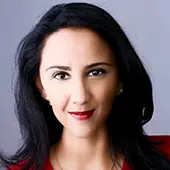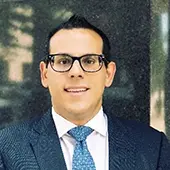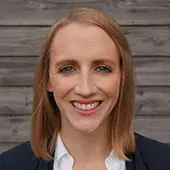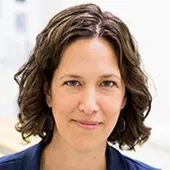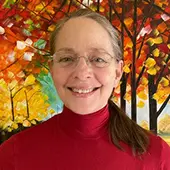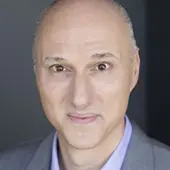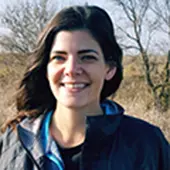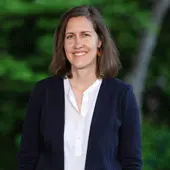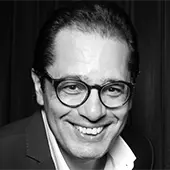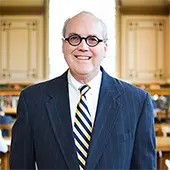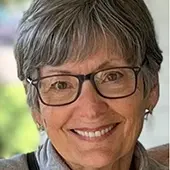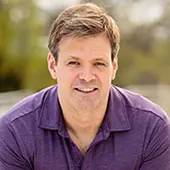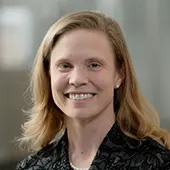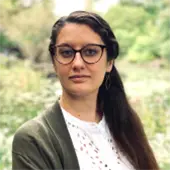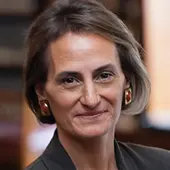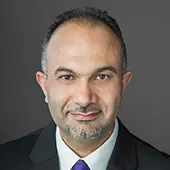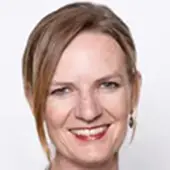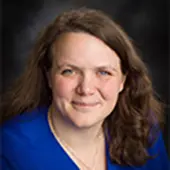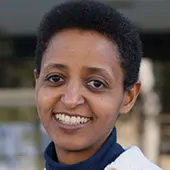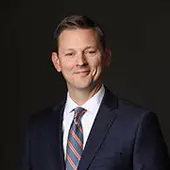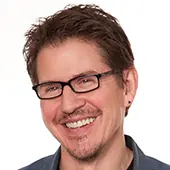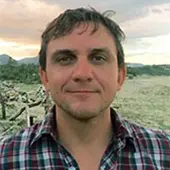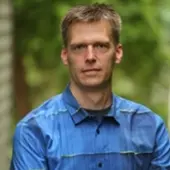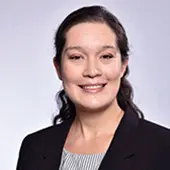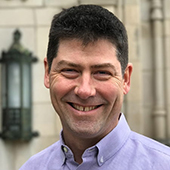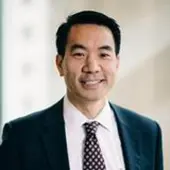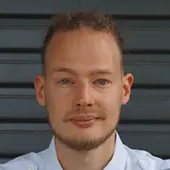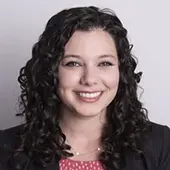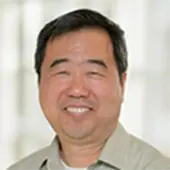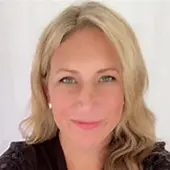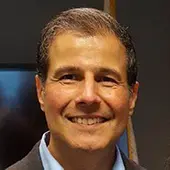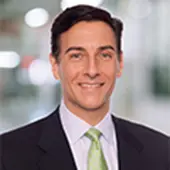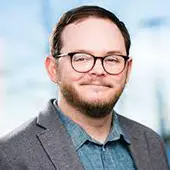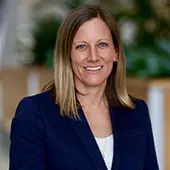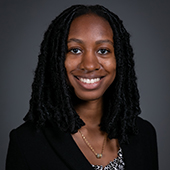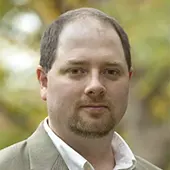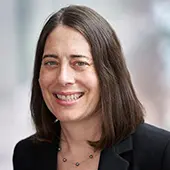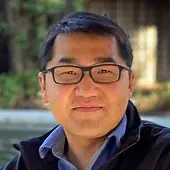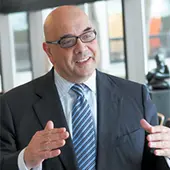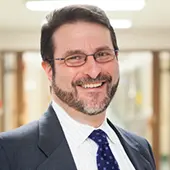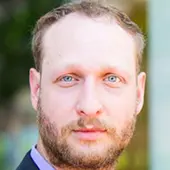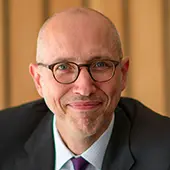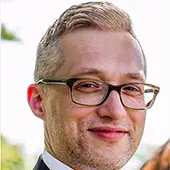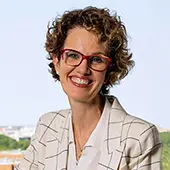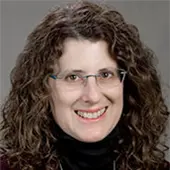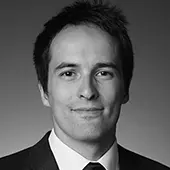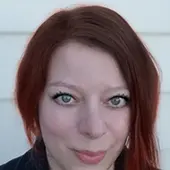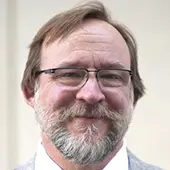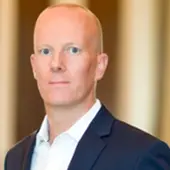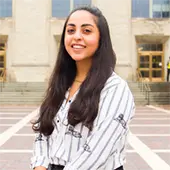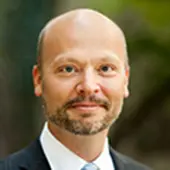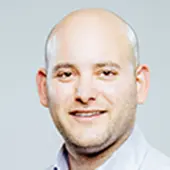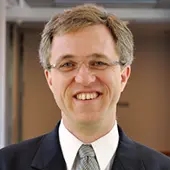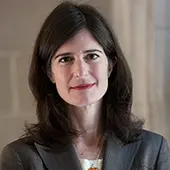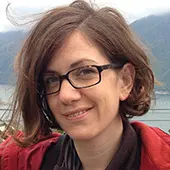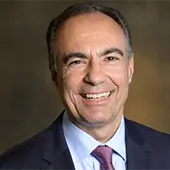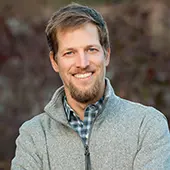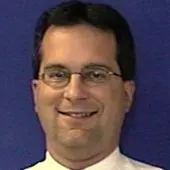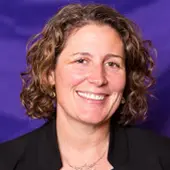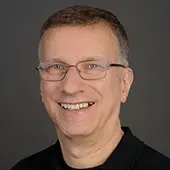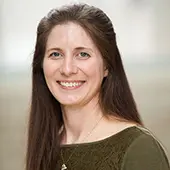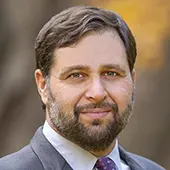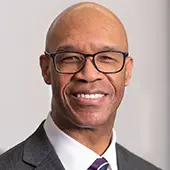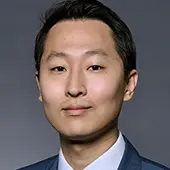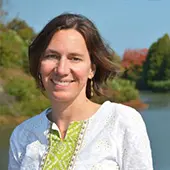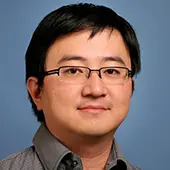Speakers
Nesha Abiraj
Diplomatic and Advocacy Liaison, Ocean States; Advocacy & Partnerships US and Caribbean, Stop Ecocide International
Hot Potato - Who Holds the Climate Liability Bag? (Friday, 11:00am)Dean Alonistiotis
Chief of Staff for Commissioner Kim de Bucle, Metropolitan Water Reclamation District of Greater Chicago (MWRD)
PFAS, Emerging Contaminants, and Trace Organics Remediation (Friday, 11:00am)Grace Andrews
Vice President and Head of Science, Vesta PBC
Beyond Neutrality: Jumpstarting the Carbon Negative Economy (Thursday, 3:30pm)Yarrow Axford
Associate Professor, Dept. of Earth and Planetary Sciences, Northwestern University
Science Communication, Misinformation, and Climate (Friday, 2:30pm)Beth Baranski
Board Member, League of Women Voters in Jo Daviess County
Lessons from Effective Public Engagement for Climate Action (Thursday, 10:00am)Michael Barsa
Professor of Practice, Co-Director of the Environmental Law Concentration, Pritzker School of Law, Northwestern University
Major Questions and the Administrative State: The Future of U.S. Climate Regulation (Friday, 10:00am); Hot Potato - Who Holds the Climate Liability Bag? (Friday, 11:00am)Megan Baskerville
Illinois Ag Program Director, The Nature Conservancy
Regenerative Agriculture and Climate (Thursday, 2:30pm)Julia Behrman
Assistant Professor, Dept. of Sociology, Northwestern University
Climate Migration of People (Friday, 1:30pm)Julia Behrman’s research investigates the causes and consequences of family change in a global perspective. Behrman’s research has received funding from the National Science Foundation and South African Medical Research Council and her work has received awards from American Sociological Association Sections on Education, Population, and Development; the Society for the Study of Social Problems; the Population Association of America; and the Sociologist AIDS Network. Prior to starting at Northwestern, she was a Postdoctoral Prize Research Fellow in Sociology at Nuffield College, University of Oxford. She received her PhD from New York University in 2017.
Mohamed Bouguettaya
Strategic Marketing and Sustainability Manager, BASF
Plastics, Plastics, Everywhere (Thursday, 3:30pm)Dr. Mohamed Bouguettaya is currently the Strategic Marketing and the Sustainability manager for BASF corporation/Performance Materials Division in north America. He is responsible for coordinating strategic corporate initiatives and cross industry activities dealing with CE as well as carbon management and end-of life solutions. Prior to his current role, Mohamed held positions in R&D and new market development at BASF in the US, Germany and China. Outside of his responsibilities at BASF, Mohamed is currently a member of the REMADE institute governance board and is chairing the center for Polyurethane industry (CPI) sustainability committee. Mohamed has a Ph.D. in Materials Science from the University of la Sorbonne /Paris XIII in France.
Wil Burns
Visiting Professor of Environmental Policy and Culture, ISEN, Northwestern University
Beyond Neutrality: Jumpstarting the Carbon Negative Economy (Thursday, 3:30pm)Bonnie Cox
Board Member, League of Women Voters in Jo Daviess County
Lessons from Effective Public Engagement for Climate Action (Thursday, 10:00am)William Dichtel
Professor, Dept. of Chemistry, Northwestern University
PFAS, Emerging Contaminants, and Trace Organics Remediation (Friday, 11:00am)Jennifer Dunn
Associate Professor, Chemical and Biological Engineering, Northwestern University; Director, Center for Engineering Sustainability and Resilience; Associate Director, Northwestern-Argonne Institute of Science and Engineering, Northwestern University
Critical Minerals for the Clean Energy Economy (Friday, 1:30pm)Diana Elhard
PhD Student, Dept. of Political Science, Northwestern University
Northwestern Perspectives from COP27 (Thursday, 11:00am)Amy Falls
Vice President & Chief Investment Officer, Northwestern University
Put Your Money Where Your Mouth Is: ESG, Divestment, and Fiduciary Responsibility (Thursday, 1:30pm)Omar Farha
Professor, Dept. of Chemistry, Northwestern University
Water Security and Management (Friday, 3:30pm)Tracy Farrell
Director - North American Region, International Union for Conservation of Nature
Envisioning Sustainable and Resilient Infrastructure (Thursday, 2:30pm)Angel Gebeau
Senior Drinking Water Engineer, AECOM
PFAS, Emerging Contaminants, and Trace Organics Remediation (Friday, 11:00am)Sossina Haile
Walter P. Murphy Professor of Materials Science and Engineering, McCormick School of Engineering, Northwestern University
The Evolving Hydrogen Economy (Friday, 2:30pm)JT Haines
Northeastern Minnesota Director, Minnesota Center for Environmental Advocacy
Critical Minerals for the Clean Energy Economy (Friday, 1:30pm)Kristian Hammond
Bill and Cathy Osborn Professor of Computer Science, McCormick School of Engineering, Northwestern University
Promise or Fallacy: The Future of Autonomous Mobility (Thursday, 10:00am)Daniel Horton
Assistant Professor, Dept. of Earth and Planetary Sciences, Northwestern University
Climate Modeling and Public Health (Friday, 10:00am)Ian Hurd
Professor, Dept. of Political Science, Northwestern University
Hot Potato - Who Holds the Climate Liability Bag? (Friday, 11:00am)Julia Kalow
Assistant Professor, Dept. of Chemistry, Northwestern University
Plastics, Plastics, Everywhere (Thursday, 3:30pm)Michael Kennedy
Research Professor, Dept. of Neurobiology; Director, Science in Society, Northwestern University
Lessons from Effective Engagement for Climate Action (Thursday, 10:00am)Michael Kennedy is a research professor of Neurobiology at Northwestern University and the founding director of Science in Society, the university’s research center for science education and public engagement. The center partners with urban K-12 teachers, administrators, and youth development agencies to create high-quality, long-term, impactful science learning opportunities for underserved youth. Early in his academic career, Kennedy recognized a need for the University research mission to more deeply connect with the community, including training its scientists in public communication and community engagement. Beginning in 2015, Kennedy’s team is working with Chicago Public Schools to test a new, practicum-based, NGSS-aligned training program for third-grade teachers. Science Club Summer Camp uses an immersive, deeply-supported, long-term approach to science teaching and learning. Led by master teachers from CPS and Northwestern scientists, elementary teachers build understanding of the nature of science and confidence in using NGSS-aligned instructional strategies. His previous positions at Northwestern include associate chair of the Department of Neurobiology and Physiology, director of education and outreach for the Center for Genetic Medicine, and, most recently, chief of staff at Northwestern’s Feinberg School of Medicine. Kennedy has a BS in chemistry from St. John’s University and a PhD in biochemistry from the Mayo Clinic.
Abel Kho
Director, Institute for Public Health and Medicine; Director, Institute for Augmented Intelligence in Medicine, Professor of Medicine, Feinberg School of Medicine, Northwestern University
Climate Modeling and Public Health (Friday, 10:00am)Michael Koepke
VP Synthetic Biology, LanzaTech; Adjunct Faculty, Northwestern University
Synthetic Biology and Circular BioEconomy (Thursday, 11:00am)Gabrielle Levy (Medill '11)
Associate Director, Communications, Climate Nexus
The Evolving Hydrogen Economy (Friday, 2:30pm)Di-Jia Liu
Senior Chemist, Argonne National Laboratory
The Evolving Hydrogen Economy (Friday, 2:30pm)Stacy Mahler
Head of Sustainability (US) - Smart Infrastructure, Siemens
Envisioning Resilient and Sustainable Infrastructure (Thursday, 2:30pm)Raed Mansour
Director of Environmental Innovation, Chicago Department of Public Health
Climate Modeling and Public Health (Friday, 10:00am)Paul Marushka
CEO and President, Sphera
Opening Plenary (Friday, 9:00am)Michael Metzger
Pick-Laudati Curator of Media Arts, The Block Museum, Northwestern University
Lessons from Effective Public Engagement for Climate Action (Thursday, 10:00am)Allison Miller
Principal Investigator and Member, Danforth Plant Science Center; Professor, Dept. of Biology, Saint Louis University
Regenerative Agriculture and Climate (Thursday, 2:30pm)Taylor Nchako
Third-year Student, Pritzker School of Law, Northwestern University
Northwestern Perspective from COP27 (Thursday, 11:00am)Taylor Nchako is a third-year student at Northwestern Pritzker School of Law, where she pursues environmental and climate justice. Taylor’s legal research focuses on public accountability for forestry policy in Cameroon. Her research proposes a civil right of action in an African regional court and calls on the international community to help build capacity in that court. Taylor is also the Online Editor-in-Chief of Northwestern University Law Review. Next semester, NULR Online will publish its inaugural Online Essay Series, "Climate Change and Infrastructure: Existential Threats to Our Built Environment." At COP27, Taylor explored these themes in sessions geared towards climate finance, community-led solutions, and infrastructure.
Erik Nisbet
Owen L. Coon Endowed Professor of Policy Analysis and Communication, Dept. of Communication Studies, Northwestern University
Science Communication, Misinformation, and Climate (Friday, 2:30pm)Hari M. Osofsky
Dean and Myra and James Bradwell Professor of Law, Pritzker School of Law, Northwestern University
Opening Plenary & Dean Fireside (Friday, 9:00am) Uuganbayar Otgonbaatar
Director, Technology Strategy, Grants & Partnerships, Constellation
The Evolving Hydrogen Economy: Silver Bullet or Infrastructure Distraction? (Friday, 2:30pm)Julio M. Ottino
Dean, Robert R. McCormick School of Engineering and Applied Science, Distinguished Robert R. McCormick Institute Professor; Walter P. Murphy Professor of Chemical and Biological Engineering, Northwestern University
Plenary & Dean Fireside (Thursday, 9:00am) Aaron Packman
Professor, Dept. of Civil and Environmental Engineering; Mechanical Engineering; Chemical and Biological Engineering, Northwestern University
PFAS, Emerging Contaminants, and Trace Organics Remediation (Friday, 11:00am)Professor Packman's research focuses on water, sediments, and microbiota, with particular emphasis on the basic processes that control interfacial dynamics in aquatic systems and the coupling of physical transport processes with biological and biogeochemical processes. He seeks to define critical structure-transport-transformation relationships in dynamic environments such as rivers and surface-attached microbial communities (biofilms). Prof. Packman's work is highly collaborative and encompasses fluid mechanics, particle transport and morphodynamics, aquatic chemistry, and microbiology. Important applications include benthic microbial ecology, nutrient and carbon cycling, contaminant transport and water quality, ecosystem degradation and restoration, waterborne disease transmission, and control of biofilms in human infection and engineered water systems.
Michael Panfil
Senior Director & Lead Counsel of Climate Risk & Clean Power, Environmental Defense Fund
Major Questions and the Administrative State: The Future of U.S. Climate Regulation (Friday, 10:00am)Adrian Randolph
Dean of the Judd A. and Marjorie Weinberg College of Arts and Sciences; Professor of Art History, Northwestern University
Opening Plenary & Dean Fireside (Thursday, 4:30pm)David Rapp
Charles Deering McCormick Professor of Teaching Excellence, SESP, Northwestern University
Science Communication, Misinformation, and Climate (Friday, 2:30pm)Annelise Riles
Executive Director of the Roberta Buffett Institute for Global Studies; Associate Provost for Global Affairs; Professor of Law, Pritzker School of Law, Northwestern University
Climate Migration of People (Friday, 1:30pm)Amy Rosenzweig
Weinberg Family Distinguished Professor of Life Sciences, Dept. of Chemistry with Molecular Bioscience, Northwestern University
Synthetic Biology and Circular BioEconomy (Thursday, 11:00am)Alessandro Rotta Loria
Assistant Professor, Dept. of Civil and Environmental Engineering, Northwestern University
Envisioning Resilient and Sustainable Infrastructure (Thursday, 2:30pm)Sarah Ryker
Associate Director for Energy and Minerals, U.S. Geological Survey
Critical Minerals for the Clean Energy Economy (Friday, 1:30pm)Brad Sageman
ISEN Co-Director, MSES Academic Director; Professor, Dept. of Earth and Planetary Sciences, Northwestern University
Opening Plenary & Dean Fireside (Thursday, 4:30pm)Ted Sargent
Professor, Dept. of Chemistry; Dept. of Electrical and Computer Engineering, Northwestern University
Beyond Neutrality: Jumpstarting the Carbon Negative Economy (Thursday, 3:30pm)Niloufar Sarvian
PhD Candidate, Dept. of Earth and Planetary Sciences, Northwestern University
Northwestern Perspectives from COP27 (Thursday, 11:00am)Max Schanzenbach
Seigle Family Professor of Law, Pritzker School of Law, Northwestern University
Put Your Money Where Your Mouth Is: ESG, Divestment, and Fiduciary Responsibility (Thursday, 1:30pm)Sam Schiller
Co-Founder and CEO, Carbon Yield
Beyond Neutrality: Jumpstarting the Carbon Negative Economy (Thursday, 3:30pm)Randall Snurr
Chair & John G. Searle Professor, Dept. of Chemical and Biological Engineering, Northwestern University
The Evolving Hydrogen Economy: Silver Bullet or Infrastructure Distraction? (Friday, 2:30pm)Juliet Sorensen
Clinical Professor of Law & Director of Bluhm Legal Clinic, Pritzker School of Law, Northwestern University
Climate Migration of People (Friday, 1:30pm)Amanda Stathopoulos
William Patterson Junior Professor, Dept. of Civil and Environmental Engineering
Envisioning Resilient and Sustainable Infrastructure (Thursday, 2:30pm)Tim Stojka
Founder, Agentis
Plenary & Dean Fireside (Thursday, 9:00am)Tyler Strom
Managing Director, Illinois Agri-Food Alliance (ILAFA)
Regenerative Agriculture and Climate (Thursday, 2:30pm)Mark Stumpf
Senior Advisor, Alliance to End Plastic Waste
Plastics, Plastics, Everywhere (Thursday, 3:30pm)Kimberly Suiseeya
Assistant Professor, Dept. of Political Science, Northwestern University
Critical Minerals for the Clean Energy Economy (Friday, 1:30pm)John Torkelson
Walter P. Murphy Professor of Chemical and Biological Engineering and Materials Science and Engineering, Dept. of Chemical and Biological Engineering, Northwestern University
Plastics, Plastics, Everywhere (Thursday, 3:30pm)Danielle Tullman-Ercek
Professor, Dept. of Chemical and Biological Engineering, Northwestern University
Synthetic Biology and Circular BioEconomy (Thursday, 11:00am)Robert Weinstock
Director, Environmental Advocacy Center; Clinical Associate Professor of Law, Pritzker School of Law, Northwestern University
Major Questions and the Administrative State: The Future of U.S. Climate Regulation (Friday, 10:00am)Charles Whitaker
Dean & Deering McCormick Distinguished Clinical Professor, Medill School of Journalism, Media, Integrated Communications, Northwestern University
Welcome & Dean Fireside (Friday, 12:00pm)Aaron Yoon
Assistant Professor, Dept. of Accounting Information & Management, Kellogg School of Management, Northwestern University
Put Your Money Where Your Mouth Is: ESG, Divestment, and Fiduciary Responsibility (Thursday, 1:30pm)Nyree Zerega
Instructor & Director, Graduate Program in Plant Biology & Conservation, Northwestern University; Chicago Botanic Garden
Regenerative Agriculture and Climate (Friday, 2:30pm)Qi Zhu
Associate Professor, Dept. of Electrical and Computer Engineering, Northwestern University
Promise or Fallacy: The Future of Autonomous Mobility (Thursday, 3:30pm)
